Egg Protein Vs Whey Protein: Let Us Help You Decide
June 05, 2024
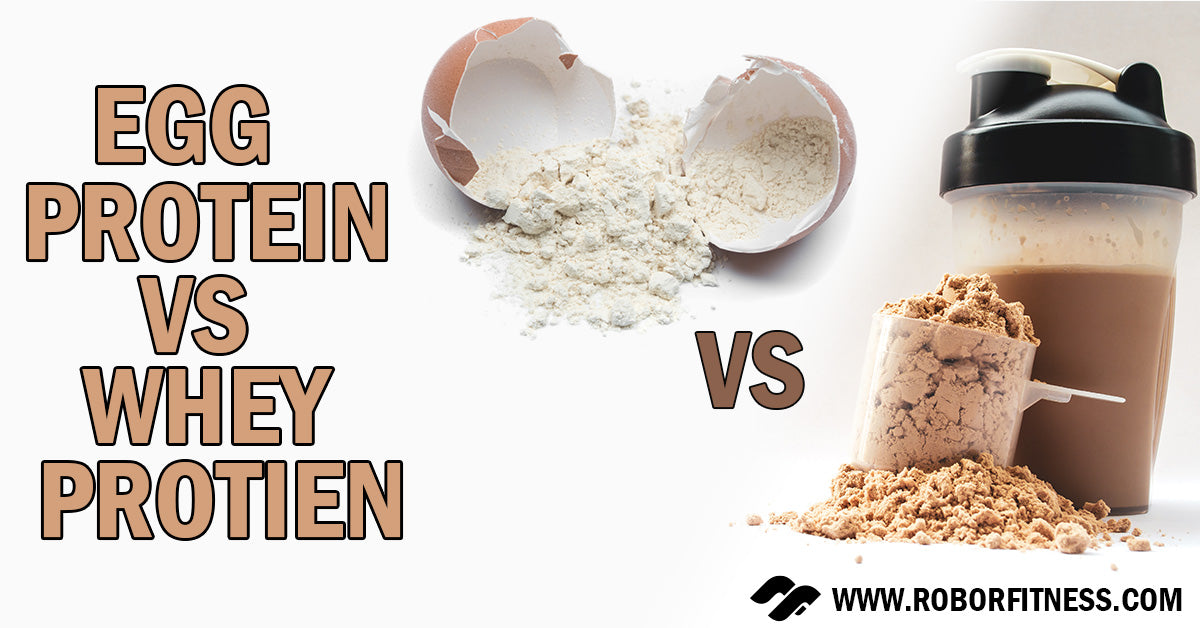
Are you torn between egg protein and whey protein for your fitness journey? Let's clear the air in the Egg Protein Vs Whey Protein debate. Both are popular choices among gym enthusiasts, but which one truly fits your workout and health goals?
This article is your go-to guide, breaking down the differences, benefits, and drawbacks of each. Whether you're a seasoned gymgoer or just starting, understanding these proteins is critical to optimizing your gains. So, let's get started and find the perfect protein match for you!
What is Egg Protein
You get egg protein when you take the humble egg and give it a superhero makeover for the fitness world. It starts with regular eggs, but here's the twist: the yolks are removed, leaving just the egg whites. These whites are then transformed through a drying process into a fine, versatile powder.
This powder packs a punch in terms of protein content minus the extra fat and cholesterol in the yolks. It's like getting eggs' muscle-building goodness in a convenient, concentrated form. Perfect for those who are all about maximizing their protein intake without the extra baggage!
What Is Whey Protein
Whey protein is like the rockstar of the protein world, viral in the gym community. It's derived from milk during the cheese-making process. When cheese is produced, the liquid that separates from the curd is where whey protein comes from. This liquid is then processed into a powder, the whey protein we know.
But, not all whey proteins are created equal. There are three main types: whey concentrate, whey isolate, and hydrolyzed whey. Whey concentrate is the most common and retains some lactose and fat but is high in protein and flavor.
Whey isolate takes it up a notch by removing most of the fat and lactose, giving you a higher protein percentage per serving. Then, there's hydrolyzed whey, which is pre-digested for quicker absorption. It's like the fast-track option for your muscles to get their protein fix!
Egg Protein Vs Whey Protein Side By Side
Choosing the right protein for your fitness goals is like picking your favorite superhero – each has unique powers. In the world of proteins, egg protein and whey protein stand out, but how do they stack against each other? Let's put these two side by side and dissect their differences and similarities.
We're covering everything from their protein content to how they affect muscle building, taste, digestibility, and their environmental impact. This comparison will give you the insights to make an informed choice that aligns with your health and fitness objectives.
Protein Content
When sizing up the protein content in egg protein and whey protein, it's a bit like comparing two top athletes – the differences are there, but they're both at the top of their game. The protein content can vary depending on the brand you choose. To give you a clear picture, let's take a side-by-side look at whey and egg protein powder from the same brand.
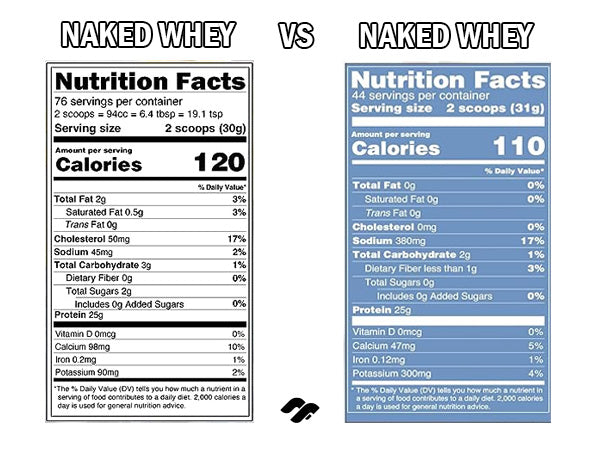
As you can see, the protein serving is remarkably similar to that of whey and egg protein. In our example, both types provide a substantial 25 grams of protein per serving. This similarity shows that whether you choose egg or whey protein, you get a significant protein punch, essential for muscle repair and growth.
Protein Quality
Regarding protein quality, both egg and whey protein hit the mark impressively. They're like the all-inclusive resorts of the protein world – they've got everything you need. Both are considered complete protein sources containing all nine essential amino acids. These amino acids are the building blocks your body needs for muscle protein synthesis – the very process of building and repairing muscle fibers.
This completeness is crucial, especially for gymgoers focused on maximizing their muscle gains. Whether lifting weights, doing cardio, or engaging in any form of exercise, these proteins provide the necessary components to help your muscles recover and strengthen.
So, in terms of protein quality, egg and whey protein stand on equal footing, offering a full spectrum of amino acids essential for your fitness journey.
Macronutrients And Calories
Diving into the world of macronutrients and calories, whey protein and egg protein show distinct differences. Whey protein often takes the lead in terms of carbohydrates and calories. This is particularly true for whey protein concentrate, which can have more calories coming from fat compared to its egg counterpart.
While egg protein typically boasts almost no fat content, some whey brands can contain 2-4 grams of fat per serving. However, if fat content is a concern for you, whey protein isolate might be your go-to option, as most of the fat has been removed.
Another point to consider is cholesterol content. Whey protein generally has more cholesterol. So, if you're someone who's watching their cholesterol intake, egg protein, with its minimal to no cholesterol content, could be the better choice. This makes egg protein a strong contender for those who are not only keen on building muscle but also on maintaining a balanced diet with controlled fat and cholesterol levels.
Having said that, we’re only talking a couple of grams equating to 10-20 calories – which in the grand scheme of things is pretty tiny and shouldn’t affect your physique goals.
Micronutrients
We uncover some interesting contrasts when we zoom in on the micronutrient content of whey and egg protein. Take calcium, for instance. Whey protein is a heavy hitter, offering double the amount of calcium compared to egg protein, based on our example brands. This makes whey protein an excellent choice for those looking to support bone health alongside muscle growth.
On the flip side, egg protein tends to be higher in sodium. In our example, egg protein contains eight times as much sodium as whey protein. While sodium is essential for muscle function and fluid balance, this higher level is something to be mindful of, especially for those who need to watch their sodium intake for health reasons.
These differences in micronutrient profiles between whey and egg protein highlight the importance of aligning your protein choice with your overall dietary needs and health goals. Whether it's boosting your calcium intake with whey or being cautious of sodium with egg protein, these factors play a crucial role in your nutritional strategy.
Taste
Regarding the taste of protein powders, it's a bit like art – everyone has their own opinion. However, there's a consensus in the fitness community that whey protein often takes the lead in the taste department. Whey Protein is known for its variety of flavors, ranging from chocolate and vanilla to more exotic options, and these flavors are generally quite pleasant and well-received.
Egg protein, on the other hand, tends to have a unique taste profile. As you might expect, it carries a slight egg flavor, which can be a bit of a hit or miss, depending on individual preferences. While some might find this taste perfectly fine, especially when mixed with other ingredients in a smoothie, others might not be as enthusiastic about it.
This difference in taste is something to consider, especially if you prioritize flavor in your protein shakes. While whey protein offers a broader range of pleasing flavors, egg protein's distinct taste might require more getting used to or creative mixing to suit your palate.
Texture
Texture plays a big role in how we enjoy our protein shakes, and here's where whey and egg protein distinctly differ. From our experience, whey protein often takes the crown for its mixability. It tends to blend seamlessly into a smooth, lump-free shake, making it a go-to choice for those who prefer a silky texture in their protein drinks.
While packed with benefits, egg white protein can be more challenging. It doesn't always mix smoothly and might leave a slightly lumpy texture in shakes. This can be a minor setback for those who are particular about the consistency of their protein beverages.
However, it's not all about shakes. When it comes to baking, egg white protein shines. Its properties can be a fantastic addition to your kitchen, especially for creating fluffy protein pancakes or other protein-packed snacks. The way egg white protein interacts with other ingredients in baking can elevate the texture of your healthy treats, making it a versatile option beyond just shakes.
Processing
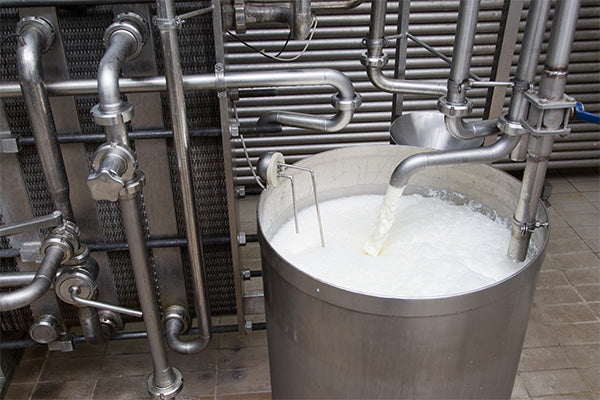
The journey from a natural source to the best protein powder, whether whey or egg, involves a fascinating transformation process. Both whey and egg proteins undergo significant processing to convert them into the powders we see on the market.
Starting with whey protein it begins its journey during the cheese-making process. The liquid whey is separated from the curds and goes through various steps, including pasteurization, filtration, and drying. This process isolates and concentrates the protein while removing fats and carbohydrates.
The level of processing can vary, especially between whey concentrate and whey isolate products. Isolates undergo additional filtering, producing a higher protein content with less fat and lactose.
Egg protein processing, on the other hand, starts with whole eggs or egg whites. The eggs are cracked and separated if necessary, then pasteurized to eliminate bacteria. The liquid is then spray-dried at high temperatures to create a fine, powdery form. This process ensures that the natural qualities of the egg protein are retained while making it convenient and versatile for consumption.
Both processes are designed to maintain the integrity of the protein while making it safe, convenient, and palatable for everyday use. Whether you're reaching for the best whey isolate or a top-notch egg protein powder, the processing behind each plays a crucial role in delivering quality and effectiveness.
Cost Per Serving
When it comes to the cost of supplementing with protein powders, every cent counts, especially for regular gymgoers. In the matchup of egg protein versus whey protein, a slight difference in cost is worth noting. Generally, egg protein tends to be a bit pricier than whey, though the gap isn't enormous.
Let's break it down with an example—the egg protein clocks in at $1.55 per serving in a head-to-head comparison of two popular brands. Meanwhile, for the same amount of protein, the whey protein is slightly more wallet-friendly at $1.26 per serving. This difference might seem small on a per-serving basis, but it can add up over time and with regular use.
This cost factor is something to consider in your protein choice, especially if you consume it frequently. While egg protein might offer certain benefits, whey protein could be the more economical choice for those looking to manage their supplement budget more tightly.
Allergies
Choosing the right protein powder can be like picking a meal at a new restaurant when you have dietary restrictions. For those with lactose or milk intolerance, whey protein derived from dairy might raise some concerns.
If you have a mild lactose intolerance, you might still be able to enjoy whey protein isolate. This form removes most lactose, leaving only 1%, making it a more tolerable option. However, for those with severe lactose intolerance or milk allergies, it's probably best to steer clear of whey. Egg protein or vegan protein powders could be the safer choices if lactose causes you problems.
Conversely, egg protein isn't suitable for everyone either. Allergies to egg proteins, though not as common, do exist. If you're allergic to eggs, egg protein powders are off the table. It's crucial to consider your body's reactions to different foods when picking your protein supplement, ensuring it fits within your dietary limits and health needs.
Digestibility
When we talk about digestibility in protein powders, the Protein Digestibility-Corrected Amino Acid Score (PDCAAS) is a key player. The US FDA and the Food and Agricultural Organization use this method to evaluate protein quality based on human amino acid needs and our ability to digest them.
Both egg white protein and whey protein stand out in this arena, boasting the highest PDCAAS among protein powders. This means they offer excellent absorption and have optimal amino acid profiles.
Egg white protein is particularly renowned for its high digestibility. It scores a perfect 1.0 on the PDCAAS, indicating that it contains all the essential amino acids in the right proportions for easy digestion and absorption. This high score translates to maximum nutritional benefit when you consume egg white protein, making it a highly efficient choice for your body.
Whey protein, while scoring high on the PDCAAS, presents a different story for some individuals. As a dairy product, it contains lactose, which can be a hurdle for those with lactose intolerance or sensitivity. When consuming whey protein, these individuals might experience digestive discomforts like bloating, gas, and diarrhea.
This can impact how much protein their body can effectively absorb and use. Additionally, for people with irritable bowel syndrome (IBS), whey protein might exacerbate symptoms due to the lactose content.
In contrast, egg protein is generally well-digested by most people and is considered a gentler alternative. It's less likely to cause stomach issues, making it a favorable option for those with sensitive digestive systems.
Environmental Impact

Egg white protein stands out as a more environmentally sustainable choice compared to whey protein. The process of producing eggs typically has a smaller environmental footprint. This includes producing fewer greenhouse gases, causing less water pollution, and leading to less destruction of natural habitats. For those mindful of their ecological impact, opting for egg white protein can be a step in the right direction.
In contrast, the dairy industry, the source of whey protein, is known for its significant environmental impact. Dairy farming contributes to higher greenhouse gas emissions. It also faces challenges like water pollution due to manure and habitat destruction caused by clearing land for grazing. These environmental considerations are crucial for individuals aiming to make environmentally responsible choices in their dietary supplements.
Weight Loss
In the context of weight loss, eggs have been linked to increased feelings of fullness (1). This is significant because feeling satiated for longer can reduce the likelihood of overeating, a key factor in weight management. The protein in eggs, mainly when consumed as part of a breakfast, has been shown to enhance satiety, making it a valuable food choice for those looking to lose weight.
However, it's important to note that high-protein diets, in general, are known to boost satiety hormones. According to research, diets rich in protein can increase the release of hormones that promote feelings of fullness (2). This means that whey and egg protein powders can effectively aid weight loss. Their high protein content can help regulate appetite and reduce the urge to snack, making them valuable tools in a weight management strategy.
In summary, while egg protein has specific studies highlighting its role in satiety, both egg and whey protein, due to their high protein content, can contribute positively to weight loss efforts by enhancing feelings of fullness.
Egg Protein Pros and Cons
Pros
- High-Quality Protein: Egg protein is a complete protein, containing all nine essential amino acids in the right proportions for optimal health.
- High Digestibility: With a PDCAAS score of 1.0, egg protein is easily digested and absorbed by the body.
- Low in Fat and Cholesterol: Egg protein powders typically have little to no fat and cholesterol, making them a heart-healthy choice.
- Good for Baking: Its properties make it excellent for baking, helping to create fluffy, protein-rich baked goods.
- Fewer Allergies and Intolerances: Generally well-tolerated, especially for those with lactose intolerance or sensitivity to dairy.
Cons
- Slight Egg Taste: Some people may find the distinct egg flavor unappealing, especially in shakes and smoothies.
- Mixability Issues: It can be less smooth than whey protein, sometimes resulting in a slightly lumpy texture.
- Higher Cost: Generally more expensive per serving than whey protein.
- Allergic Reactions: Not suitable for those with egg allergies.
- Environmental Impact: While better than dairy, egg production still has an ecological footprint.
Whey Protein Pros and Cons
Pros
- Variety of Flavors: Whey protein comes in various flavors, catering to different tastes.
- High Protein Content: Like egg protein, whey is a complete protein, providing all essential amino acids.
- Muscle Building and Repair: Effective for muscle growth and repair, making it popular among athletes and gymgoers.
- Easily Mixable: Tends to mix well, forming a smooth texture in shakes and drinks.
- Cost-Effective: Generally more affordable per serving compared to egg protein.
Cons
- Lactose Content: This can cause digestive issues for people with lactose intolerance or sensitivity.
- Potential Allergen: Not suitable for individuals with a dairy allergy.
- Environmental Impact: Dairy production, from which whey is derived, has a significant ecological footprint.
- Higher in Fat and Cholesterol: Whey protein can have higher fat and cholesterol levels depending on the type.
- Caloric Content: Some whey protein products may have higher calories, which could concern those managing their weight.
How Much Protein Do You Need to Build Muscle
In building muscle, supplements should be used to supplement a healthy diet. Most of your daily protein intake should ideally come from whole food sources. Regardless of whether you choose egg or whey protein supplements, the critical factor is ensuring you consume enough protein daily to maintain and build muscle tissue.
Protein is the fundamental building block of muscles, and not getting the right amount can hinder your muscle-building progress, regardless of the intensity of your training. A 2017 study suggested that consuming between 0.7-1g of protein per pound of body weight (1.6-2.2g per kg) is sufficient to maximize anabolism, the process of building muscle (3).
This recommendation was echoed in a 2019 study (4), which found these protein intake levels adequate for bodybuilders looking to build muscle.
In summary, egg and whey protein can contribute to muscle building. Still, the total daily protein intake, ideally from a combination of food and supplements, is crucial for effective muscle growth.
Our Recommendations
The 2 products that we stood side by side were Naked Whey and Naked Egg. The Naked brand is renowned for producing high-quality, super-clean supplements. Both products are free from artificial flavourings, GMO's, Stevia, and any harmful added extra's.
On top off that, they're extremely affordable - it's a win win!
Naked Whey
The Final Say
In the showdown between egg protein and whey protein, it's clear that both have their unique strengths and considerations. Whether for muscle building, dietary preferences, or environmental concerns, your choice depends on what fits best with your health goals and lifestyle.
Remember, supplements are just part of the equation; a balanced diet is vital. Ultimately, egg and whey protein are excellent choices for supporting your fitness journey, each bringing its benefits to the table. Choose wisely, and let your protein work for you!
Related: Whey Protein & Plant Protein Compared
References
- Wal, J. S. V., Marth, J. M., Khosla, P., Jen, K. C., & Dhurandhar, N. V. (n.d.). Short-Term Effect of Eggs on Satiety in Overweight and Obese Subjects. Journal of the American College of Nutrition, 24(6), 510–515. https://doi.org/10.1080/07315724.2005.10719497
- Nutr Metab (Lond). A high-protein diet for reducing body fat: Mechanisms and possible caveats. (2014). PubMed Central. https://doi.org/10.1186/1743-7075-11-53
- Tanner Stokes, Amy J. Hector, Robert W. Morton, Chris McGlory, & Stuart M. Philips. (2018). Recent Perspectives Regarding the Role of Dietary Protein for the Promotion of Muscle Hypertrophy with Resistance Exercise Training. PubMed Central. https://doi.org/10.3390/nu10020180
- Iraki J, Fitschen P, Espinar S, Helms E. Nutrition Recommendations for Bodybuilders in the Off-Season: A Narrative Review. Sports (Basel). 2019 Jun 26;7(7):154. doi: 10.3390/sports7070154. PMID: 31247944; PMCID: PMC6680710.

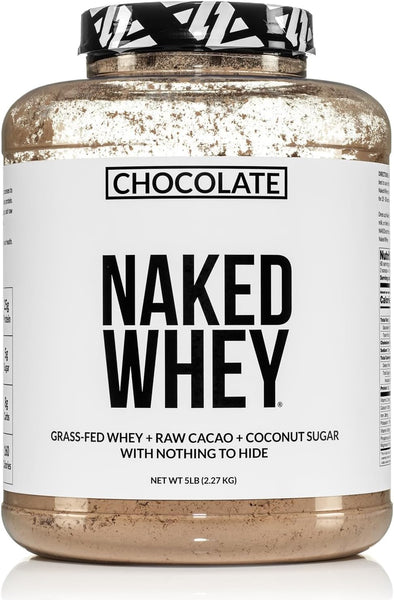
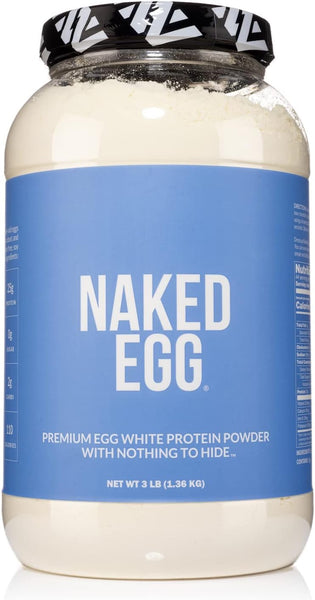





Thomas D
Author
Thomas is a dedicated fitness enthusiast with over 12 years of experience in the gym. As a level 2 qualified gym instructor, he combines his passion for working out and nutrition to help others achieve their fitness goals. Thomas stays up to date with the latest fitness research and follows the work of top experts in the field. With a balance of textbook knowledge and real-life experience, he provides practical guidance to help others reach their full potential.